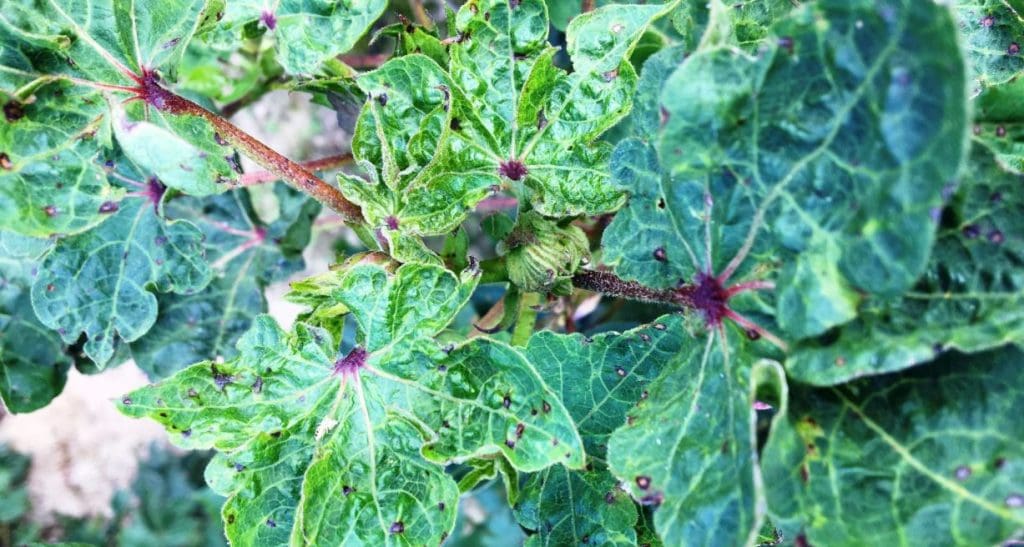
AUSTRALIA is on biosecurity alert for the virulent cotton crop disease, cotton leafroll dwarf virus, which is emerging in the United States, threatening the $7 billion US cotton industry.
Carried by a tiny insect, the cotton aphid, the virus is known to kill 80 per cent of crops in infected fields and even infects crops bred for resistance.
Cotton leafroll dwarf virus, which is prevalent in Argentina and Brazil, was first detected in two Alabama counties in 2017.
One year later, the virus spread to 21 Alabama counties as well as cotton fields in Florida, Georgia, Mississippi and Texas.
Infected plants first exhibit symptoms of drooping leaves that progress to the crinkling of leaves and deformation of top growth, flowers, and bolls.
Ultimately the disease may progress to boll drop, stunting, stacking of internodes, and in late season, exaggerated elongation of the mainstem.
Research grant
To address this new threat to American cotton, the Foundation for Food & Agriculture Research (FFAR) awarded a $150,000 Rapid Outcomes for Agriculture Research (ROAR) grant to Auburn University to study the effectiveness of existing and new cotton strains at resisting the disease.
“Cotton leafroll dwarf virus is the latest concern threatening southern cotton farmers and, if left unchecked, this virus could become a pandemic,” FFAR executive director Dr Sally Rockey said.
“Increasing our knowledge of resistance and developing extension tools for farmers while the virus is still relatively contained is the best way to slow the disease’s spread.”
South American farmers are protected by breeders developing virus-resistant varieties; however, the new strain of cotton leafroll dwarf virus is infecting plants that were bred to resist the disease.
Auburn University researchers are following this example by testing a wide variety of commercially available American and South American cotton plants for resistance to this new virus.
Many cotton strains grown domestically are vulnerable to the new cotton leafroll dwarf virus, making the rapid development and deployment of resistant cotton varieties imperative to avoid sizable yield losses in the US.
The Auburn University research team is assessing the resistance of existing and advanced cotton varieties from around the world to combat the US strain of cotton leafroll dwarf virus.
They are further studying the effects of the disease on different cotton crops, tracking how cotton leafroll dwarf virus is spread by cotton aphids and other insects.
Using the FFAR grant, they are developing diagnostic tools to quickly identify the disease.
Additionally, the researchers are producing digital and print information as training for both scientists and producers.
Source: FFAR



HAVE YOUR SAY